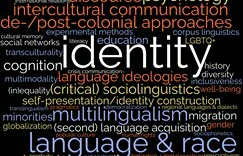TaalX: Language in Context

TaalX (pronounced like ‘talks’): Language in Context is the Sectoral Plan theme concerned with language as a social practice and the cultural and political contexts of its use.
Language allows humans to engage in meaningful and complex interactions with others, but it is more than merely a tool. Choices in language use and discourses, including the choice to exclude or forbid the use of given language(s), greatly impact and define human identities, societies, politics, and cultures, both in the past and present. Embedded in the multilingual northern Netherlands, the new sectoral plans theme strengthens our expertise in the interconnectedness between language, identity and cognition, with a keen interest in minority and regional language use. Groningen aims to become a knowledge expertise hub on the topic of language in cultural-political contexts over the course of five years, consolidating this expertise hub role after the initial five years.
Understanding borders, boundaries and margins is central within this theme. Borders may pertain to the role of language in defining international relations, in negotiating meaning and rules of conduct across borders in discourses surrounding problems such as climate change, but may also pertain to how linguistically inclusive or exclusive practices shape human relations and cognitive and mental health. Through this theme, we also capitalize on the contribution that the language and cultural sciences as a humanities discipline can make and the impact they have on societal challenges, by themselves and in conjunction with other disciplines. Crossing borders also very much entails crossing disciplinary borders and, through interdisciplinary and multidisciplinary collaborations, crossing the border from scientific insights to societal impact.
TaalX encompasses the following subthemes:
-
Language, interaction and cognition
-
Language and wellbeing
-
Narratives of inclusion and exclusion
-
Language, culture and identity
-
Policies and practices in multilingual communities
-
Socio-cultural aspects of minority and regional language use
-
Discourse, society and politics
-
Creative expression and cultural meaning
-
Critical language awareness and citizenship
